A journey of hope
Everence employees take part in Civil Rights Movement tour
(L-R) Caitlin, Logan, Tonya and Jason Yoder Rupp, Emily Miller, Ann Meier, Kent Miller and Ariana Sauceda.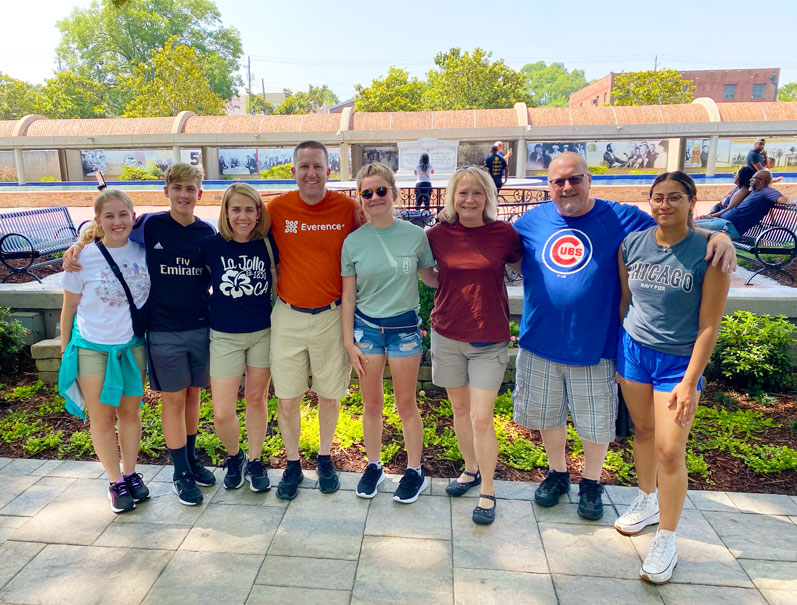
This summer, five Everence employees embarked on a transformative nine-day journey covering 2,300 miles through the heart of the American South. Their mission? To dive into the history of the Civil Rights Movement, confront the brutal realities of the past and carry home messages of hope and reconciliation. Holt Street Memorial Baptist Church in Montgomery, Ala. The group had a chance to meet Lynda Blackmon Lowery, author of “Turning 15 on the Road to Freedom” A memorial to lynching victims at the National Memorial for Peace and Justice in downtown Montgomery, Ala. (L-R) Jason Yoder Rupp, Ariana Sauceda, Ann Meier, Emily Miller and Kent Miller.
Guided by Todd Allen, Ph.D., Vice President for Diversity Affairs and Professor of Communication at Messiah University (Mechanicsburg, Pa.), the Everence® team joined a group of over 30 others on the annual Returning to the Roots of Civil Rights bus tour.
Representing Everence were Ann Meier, Contract Analyst; Emily Miller, Credit Union Member Relations Manager; Kent Miller, Financial Consultant; Ariana Sauceda, former Administrative Assistant; and Jason Yoder Rupp, IT Systems Developer, who was accompanied by his family – Tonya, Caitlin, and Logan Yoder Rupp.
Their itinerary was packed with poignant visits to prominent Civil Rights sites, meeting living legends from the movement as well as those who continue to champion the cause today, engaging with historical texts and stories and reflecting on the enduring significance of racial reconciliation.
TAKING THE HARD ROAD
On a warm June day, the tour bus departed from Beaver Falls, Pa., and headed south towards its first stop: the International Civil Rights Museum in Greensboro, N.C.
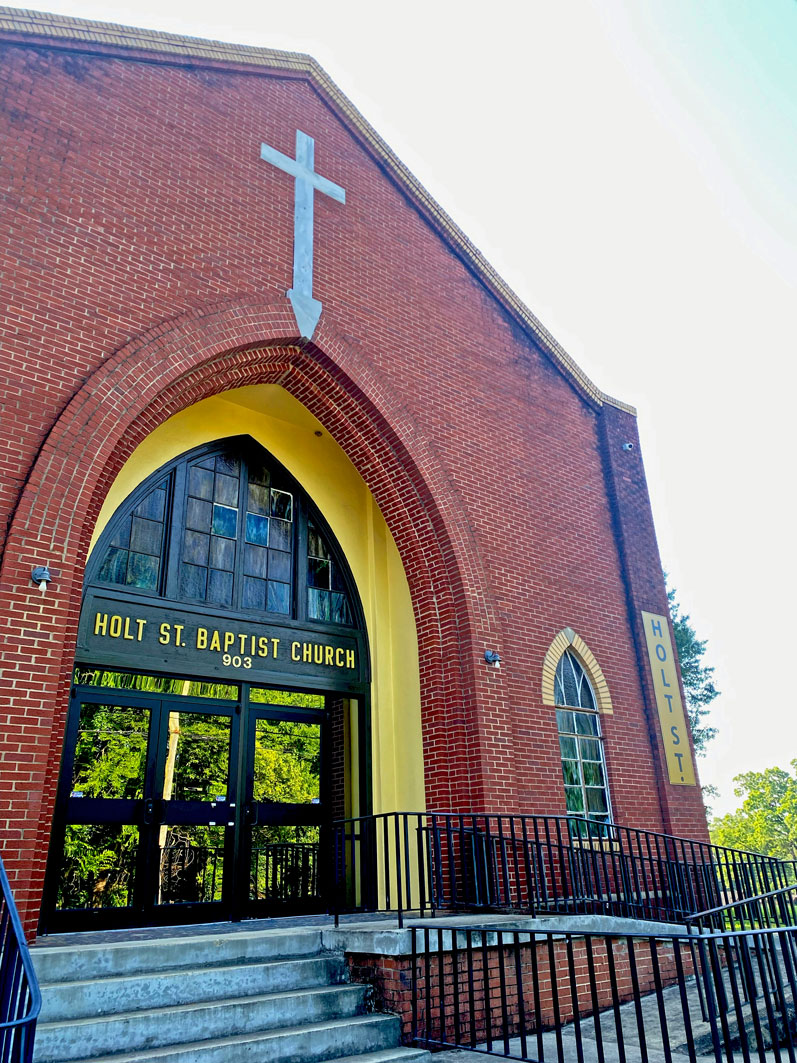
The week ahead included stops through Montgomery, Selma and Birmingham in Alabama; Jackson, Miss.; Memphis, Tenn.; and finally, Canton, Ohio. On the bus, they watched documentaries about the Civil Rights Movement.
As they ventured further into the South on day two, they arrived in Atlanta, Ga., where they explored Dr. Martin Luther King, Jr.’s childhood home and the church where he had served as a pastor. Ann Meier summarized the experience, saying, “It was a real honest look at our history. This is what is required if we want to have hope for our future and build the beloved community Dr. King described.”
The lessons learned from the past were a stark reminder that the fight for civil rights and justice continues in the present day, the group noted. Emily Miller said she expected “a nice overview of history,” but that was far from the case. “I had a rude awakening when I got to the deep South and saw with my own eyes and heard with my own ears about past injustices. I can say now that I have a much broader understanding of not just Black history, but American history.”
Day three began in Albany, Ga., where the team arrived at a picturesque piano-themed scene at Ray Charles Park, just across from their hotel, before visiting Charles M. Sherrod Civil Rights Park, Shiloh Baptist Church, Old Mt. Zion Baptist Church and exploring the Albany Civil Rights Institute. One of the highlights was meeting and singing with Rutha Mae Harris, an original Freedom Singer.
“There’s so much hope in the people that we met, and we have to rely on that and keep pushing forward with that hope,” Yoder Rupp reflected. “It was an enlightening and powerful experience that has forever changed my views of the Jim Crow era, the Civil Rights Movement and the history of African American people in the United States.”
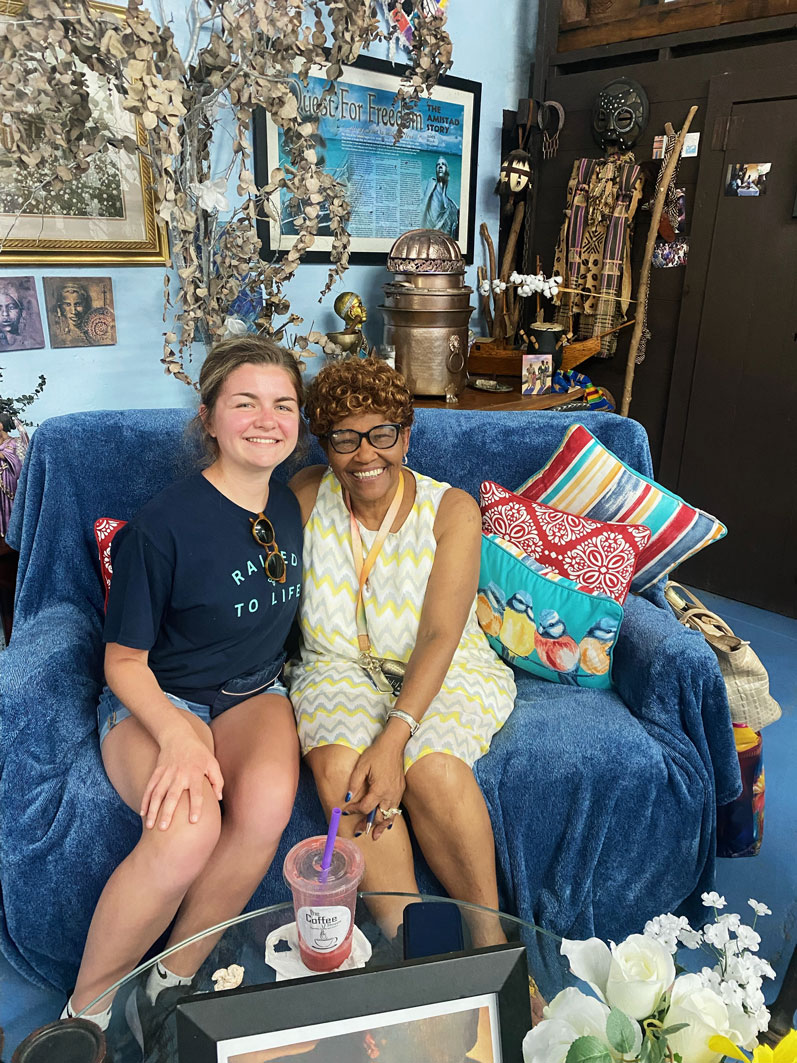
In Montgomery, they visited the Rosa Parks Library and Museum. In Selma, they walked the Edmund Pettus Bridge, the starting point of the historic Bloody Sunday march. They met Lynda Blackmon Lowery, the youngest marcher at 14, who shared her moving experiences. They ended the day by visiting a memorial to Viola Liuzzo, a white woman shot by the Ku Klux Klan for helping Black activists.
“This trip has altered my life in a way I wouldn’t have experienced within my own skin,” Sauceda said. “To be able to hear the stories from those who have lived and participated in the Civil Rights Movement in the South, is something that I’ll forever be grateful for.”
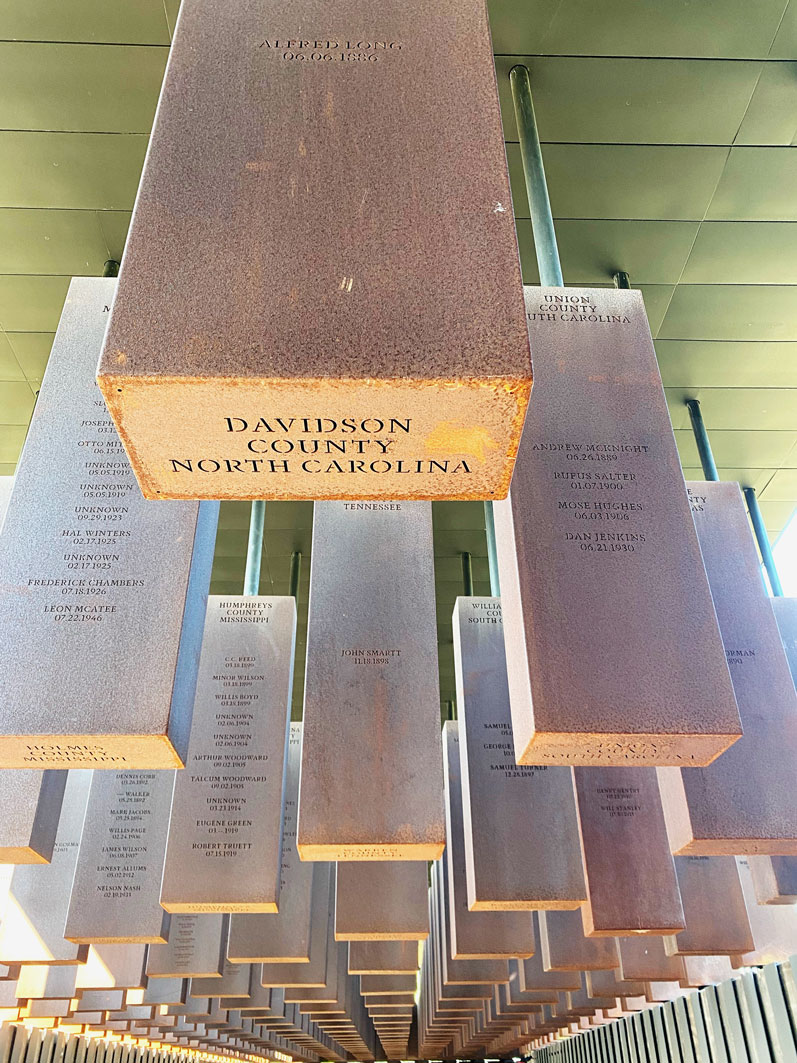
At the National Memorial for Peace and Justice and The Legacy Musuem, the group learned about lynching victims and heard from author and activist Anthony Ray Hinton, who was wrongfully convicted and on death row for 28 years – before being released – because of his race.
“To say this is life-impacting might be a tremendous understatement,” Kent Miller said. “As I’ve reflected on the ways that individuals engage racism, and the horrors of abuse, brutality, lynching and basic dehumanization of people of color that our country has systemized, I was just amazed at their courage, determination and hope, to not only survive, but really thrive, in the hearts and lives of those we met.”
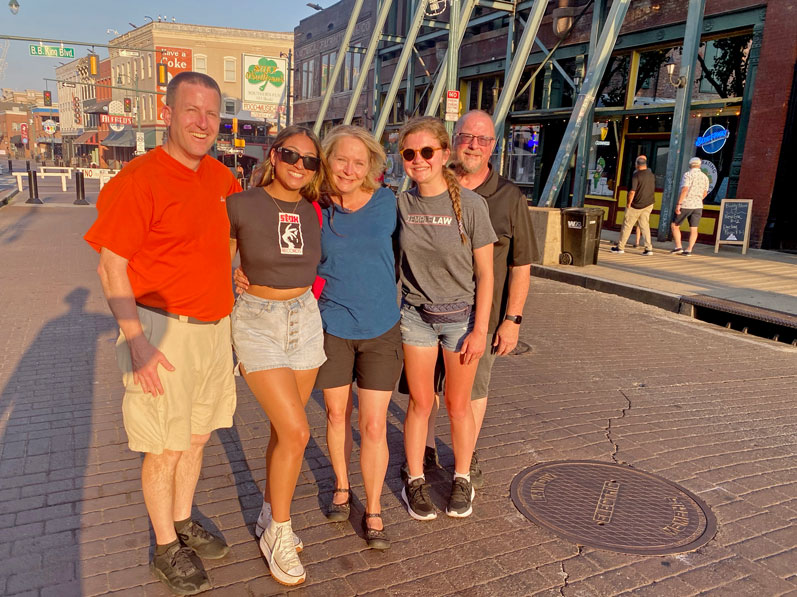
They spent the final days in Birmingham, where the 16th Street Baptist Church and Kelly Ingram Park commemorate Civil Rights struggles. In Jackson, the group explored the Mississippi Civil Rights Museum and met with Hezekiah Watkins, the state’s youngest Freedom Rider. In Memphis, they visited the National Civil Rights Museum at the Lorraine Hotel, the Church of God in Christ and the “I Am a Man” memorial. They tasted Beale Street’s cuisine and explored the Stax Records Museum of American Soul Music.
As this group carries the lessons learned from their journey forward, they hope to become beacons of hope in their communities, working to illuminate the path toward a more just and equitable future.
“This was a nine-day bus trip, but the journey which it started is ongoing,” Kent Miller said. “And as I process all that I’ve experienced, I realize the journey is exciting and hard, as I uncover changes that I need to make and find ways to bring light to my community.”
